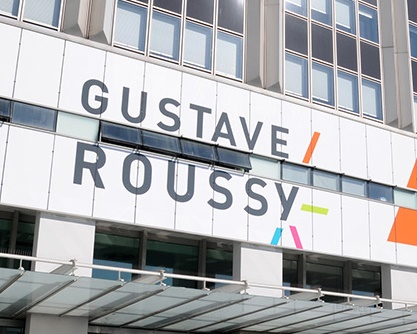Gustave Roussy and Protagen AG collaborate to improve the risk profiling of cancer patients undergoing immunotherapy
Protagen AG and Gustave Roussy have announced the start of a collaboration to utilize Protagen’s SeroTag technology to help identify biomarkers that predict and monitor immune-related adverse events (irAEs) in cancer patients treated with checkpoint inhibitors.

Checkpoint inhibitors offer enormous potential for the treatment of many cancer indications, including melanoma and renal cell carcinoma. Yet, only a subset of patients respond favorably to treatment and it is not currently possible to predict which patients will benefit from therapy. In addition, checkpoint inhibitors can also trigger (often severe) irAEs, which has led to the FDA halting clinical trials in the past. Through this new collaboration, Protagen and Gustave Roussy will utilize Protagen’s proprietary immune system profiling platform, SeroTag®, to monitor patients, detect irAEs and ultimately conduct comprehensive risk profiling for those undergoing cancer immunotherapy. This project is part of the ongoing Gustave Roussy Immunotherapy Program (GRIP), which aims at developing immunotherapy access and best practice.
Dr. Aurelien Marabelle, clinical director of the Gustave Roussy Immunotherapy Program commented: “Although immunotherapies like checkpoint inhibitors have shown great promise for treating those suffering from cancer, response rates for these therapies are still low (often around 10-20%). In addition, our efforts to improve therapeutic outcomes via the implementation of combination therapies can increase the risk of the patient developing debilitating and sometimes fatal irAEs.” He continued: “It is therefore vital that we try to understand more about the immunological responses patients are exhibiting to cancer, both before and during therapy. Utilizing Protagen’s SeroTag platform will enable us to ask these questions, and we very much look forward to this collaboration.”
Dr. Peter Schulz-Knappe, Protagen’s Chief Scientific Officer, added: “Our unique SeroTag® technology has already demonstrated its ability to stratify patients into homogenous disease subgroups for a number of autoimmune indications, thereby supporting the development of novel therapies. Due to the strong link between immuno-oncology and autoimmune disease, we believe that applying our technology and approach to the immuno-oncology field will result in improved patient selection for novel immuno-therapies and support the risk profiling of patients for the development of irAEs. We feel privileged that Gustave Roussy shares this view and we are excited about our collaboration.”

